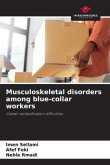Readiness for rehabilitation is defined in this study
as the cognitive precursor of behavioral change.
It may be seen as the movement from weighing up goal
incentives and expectancies to the implementation of
a chosen goal. In vocational rehabilitation,
readiness is typically assessed superficially and
reported dichotomously as either ready or not ready.
The motivation for assessment of readiness is often
to justify acceptance decisions and to predict
vocational success. A focus on understanding
readiness for vocational change and its influences is
a relatively new, unexplored, and complex area.Key
findings from this study were, firstly, that
individuals with psychiatric disabilities want to
work and are driven by an inner desire, secondly,
that while the role of worker is an important
possible self , other social roles are as important,
and, thirdly, that the impact of one s illness is a
major determinant of readiness for vocational change.
as the cognitive precursor of behavioral change.
It may be seen as the movement from weighing up goal
incentives and expectancies to the implementation of
a chosen goal. In vocational rehabilitation,
readiness is typically assessed superficially and
reported dichotomously as either ready or not ready.
The motivation for assessment of readiness is often
to justify acceptance decisions and to predict
vocational success. A focus on understanding
readiness for vocational change and its influences is
a relatively new, unexplored, and complex area.Key
findings from this study were, firstly, that
individuals with psychiatric disabilities want to
work and are driven by an inner desire, secondly,
that while the role of worker is an important
possible self , other social roles are as important,
and, thirdly, that the impact of one s illness is a
major determinant of readiness for vocational change.








